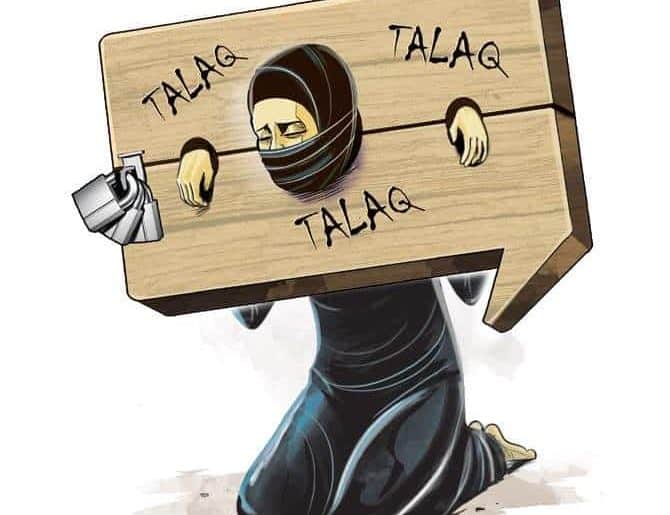On 22nd August 2017 came a historic 395-page judgment which was not only a victory for Muslim women who lived for centuries in a constant sense of fear and pressure of this immoral practice, but also a new milestone to women’s right and religion in India.
DIVORCE UNDER MUSLIM LAW AND TRIPLE TALAQ Under Muslim law, marriage is a civil contract where the husband enjoys special privileges and the wife suffers certain disabilities as compared to the husband. The husband is given an unchecked power of divorce except for the restraint of the law of dower and his own moral sense. On the other hand, Muslim women must prove the grounds or get the consent of the husband to get the divorce, in which case the husband can escape the liability of paying dower.
There are different modes of talaq under Muslim law such as implied, contingent, constructive, delegated, or express. Sunni Muslims recognise all of these modes of talaq whereas Shia Muslims recognise only express and delegated divorce.
The express mode of divorce has two forms: Talaq-ul-Sunnat and Talaq-ul-Biddat, also known as triple talaq. It is the second form which has been a point of contention for decades. Talaq-ul-Biddat is the practice under which a Muslim man can divorce his wife by simply uttering “talaq” three times. Interestingly, those who hold this decision as an attack on personal religion should know that Allah never approved this mode of talaq. Even the Shias do not recognise triple talaq.
FROM SHAH BANO TO SHAYARA BANO
The journey of the Supreme Court’s milestone verdicts in regard to religious reform is as old as independence. With regard to Muslim law, a few cases in which the Supreme Court observed such landmark decisions are the Shah Bano Case (1985), Danial Latifi Case (2001), Shamim Ara Case (2002), and Masroor Ahmed Case (2008). It was the case of Shah Bano in which the Supreme Court not only delivered a landmark judgment on rights of Muslim women but also brought the issue into mainstream media. The judgment faced huge criticism by conservative Muslim groups who presented the verdict as an attack on Muslim personal law. Consequently, vote bank politics and appeasement led to the enactment of the Muslim Women (Protection of Rights in Divorce) Act, 1986. This act negated the far-reaching effects of the Shah Bano judgment, which led to strong feminist movements against the state. Finally, the constitutional validity of the act was challenged in the Daniel Latifi Case (2001), where the Supreme Court showed an act of restraint and diplomacy. It rejected the challenge but re-interpreted Section 3 of the Act to solve the issue of the right of maintenance of Muslim women.
In the Shamim Ara Case (2002) and Masoor Ahmed Case (2008), the apex Court acknowledged the issues with regard to talaq. The jurisprudence of talaq has since undergone a vast improvement. The court observed the importance of communication of pronouncement and attempt of reconciliation before the finalisation of dissolution of marriage. Finally, last month, the Court gave its judgment on the Shayara Bano case, branding triple talaq as unconstitutional once and for all.
WHY IS THIS VERDICT IMPORTANT?
As Virginia Saldanha, a Mumbai-based theologian stated, we need to accept the fact that all religions have promoted a patriarchal mindset where “men are dominant as recipients, interpreters, and transmitter of divine messages, while women have largely remained passive receivers of teachings and ardent practitioners of religious rituals”. The judiciary of India has shown a progressive approach towards women’s rights, be it Muslim or Hindu Women. The problem arises when these decisions are taken as an attack on one’s religion rather than progressive reforms in religion. We need to take discriminatory practices and notions out of our religion to create an environment of equality and abolish the existing gender bias. This judgment is illuminating and needs to be cherished by people around the country; we need to reform our religions and its practices so that they do not threaten the constitutionally enshrined principles of equality and justice.
Feature Image Credits: Olive Green Institute
Guest Post by Krishna Sharma, Third-Year Student at Faculty of Law, University of Delhi


